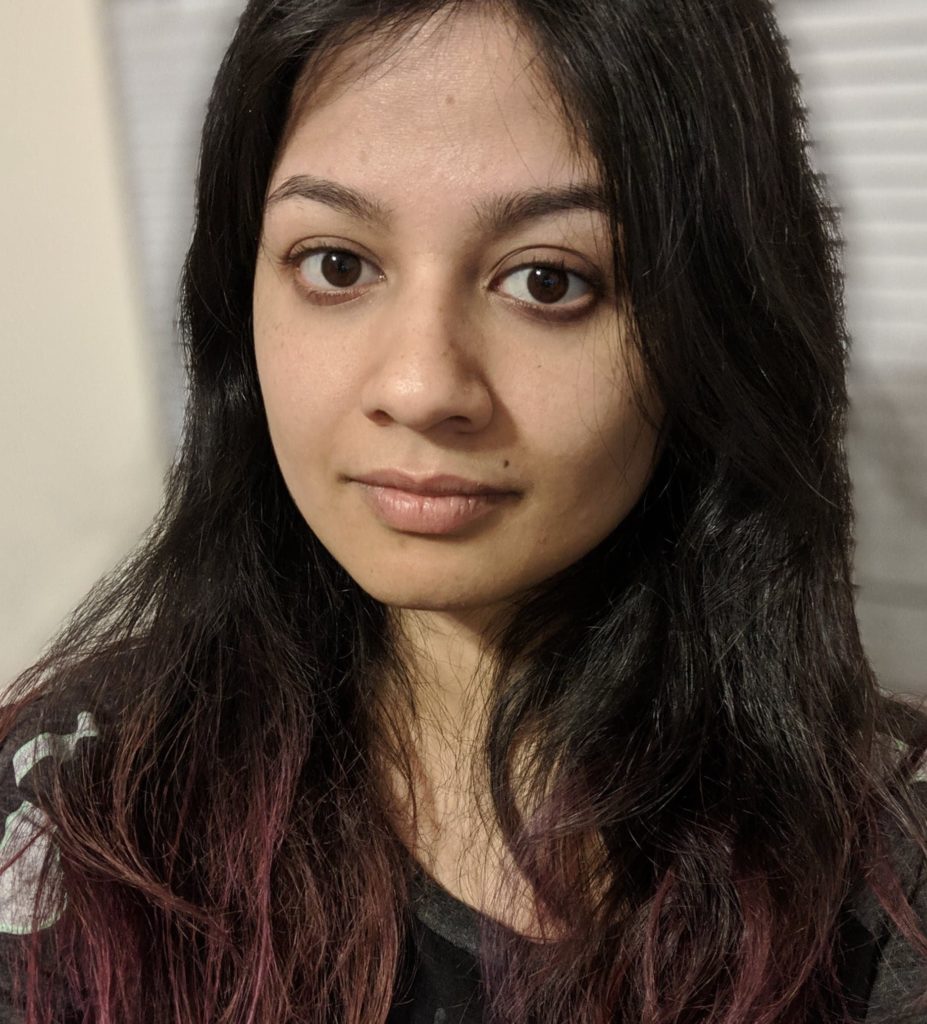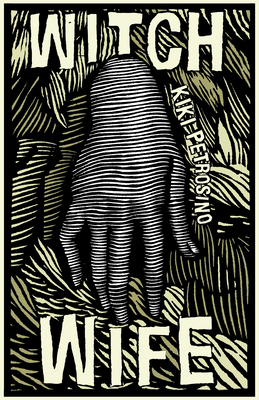
It’s the last week of our 2021 youth folio reading period! Earlier this year, we introduced our 2021 guest editor, Eugenia, and in late 2020, we helped you get to know Karen, our fall intern (and current staff reader). Today, while you’re preparing those last-minute submissions, we thought we’d take the time to highlight another member of our editorial team: our senior staff reader, Indrani Sengupta. Indrani is a Pushcart Prize–nominated poet from Kolkata, India, who is, in her words, “currently braving Illinois weather.” She received her MFA in poetry from Boise State University, and her work has appeared or is forthcoming in journals such as Quarterly West, American Poetry Review, Colorado Review, Indiana Review, Copper Nickel, Black Warrior Review, Southeast Review, and Grimoire. As a key member of the LR editorial team for the past two years, Indrani brings a keen eye for craft and an empathetic approach to our submissions process, evaluating each poem she reads with fairness and care. If a manuscript crosses Indrani’s desk, rest assured that it’s in good hands! Read on to learn more about Indrani’s obsession with writing the body through fairy tales, garden spaces, and more in her own poetry; her thoughts on the importance of having the courage to play with abandon in one’s work; and her radical, canon-exploding dreams for the future of Asian American poetry. We know you’ll love her as much as we do by the time you’re through!
LANTERN REVIEW: How did you come to poetry?
INDRANI SENGUPTA: In grade school, we were given an assignment to write short free verse poems about natural artifacts: sun, sea, moon, earth, the like. I remember putting the full freight of my nine-year-old vocabulary into making them as pretty and wastefully lavish as possible. My teacher was pleased. My mother read them aloud over and over. I couldn’t stand it. I think I realized even then that there was something dishonest in what I’d written, so full of self-conscious beauty and so devoid of rage (which I had plenty of). I flirted with poetry for several years, writing well-behaved poems. I don’t think it was until I started reading poets like me — contemporary, female, brown — that I realized what poetry could actually be. Thorny, volatile, stunningly unfinished, devastating to writer and reader alike.
LR: What interests or obsessions are driving your work right now?
IS: Bodies, as they pertain to reproductive trauma and sexual assault, as they function in medical spaces, domestic spaces, garden spaces, hortus conclususes, witchcraft, the mythological canon, and the fairy tale canon. That’s . . . a lot of somewhat disparate topics, but I think the anchor point is always the body. Not even mine, necessarily. I’ve been enjoying getting into the sleeves of archetypal personas and anatomizing them from inside out.
LR: What’s one writing ritual or self-care practice that helps sustain you?
IS: The only thing that works for me is a sustained, penciled-in writing routine. It’s not as sexy as spontaneous inspiration, but I like to think there’s something good and worshipful about sitting with yourself for three hours and throwing nothing at a nothing-wall until something appears. For company, I keep a running doc of breathtaking poems from different journals and books that have nothing to do with each other, a running list of exciting words and orphaned lines that I want to use someday, and string lights that only come on when I’m writing (an attempt at conjuration).
Another completely unrelated practice: Dungeons & Dragons! It’s kind of like an act of communal, extemporaneous writing where you cannot fail—only die a little.
LR: What are some of your favorite poetry collections of the moment?
IS: These are not all of the moment, but I’m very much stuck on them: Bhanu Kapil’s Humanimal, Franny Choi’s Soft Science, Srikanth Reddy’s Underworld Lit, Ocean Vuong’s Night Sky with Exit Wounds, Theresa Hak Kyung Cha’s Dictée, Claudia Rankine’s Citizen, Kiki Petrosino’s Witch Wife, Kerri Webster’s We Do Not Eat Our Hearts Alone, Alicia Mountain’s Thin Fire.
LR: Looking back, what’s something you wish you could tell your younger self?
IS: Back in school, I once got feedback to play more with my work. I could not for the life of me figure out how. I thought I was already pushing the limits of what I was capable of. It took many years of hindsight to understand, and maybe I’m still in the process of understanding. If I could go back, I’d translate like so: throw out the loved image; interrupt the music; write the poem that doesn’t wrap neatly, that guts itself as it goes. Reapproach the work without a plan or a conscience. The good thing is, nowadays I have no real plan for anything. It’s terrifying! And I think that terror’s so very useful.
LR: What does “Asian American futures” mean to you?
IS: I attended grade school in India, but my first exposure to poetry was through the British canon. And I’m grateful to it, but I often think of who I’d be today if I’d encountered contemporary Asian American poetry sooner, or first. My hope for the future that kids like me (and unlike me) have that chance. Rework, expand, explode the canon.
* * *
Many thanks to Indrani for sitting down with us to chat! For more from her, check out some of her poems here and here. And if you’re an Asian American poet or artist aged 14–24 and you haven’t yet already checked out our youth folio call for submissions, head on over to our Submittable page—there’s just under a week left to send us your work!
ALSO RECOMMENDED
Kiki Petrosino, Witch Wife (Sarabande, 2017)
Please consider supporting an BIPOC-owned indie bookstore with your purchase.
As an Asian American–focused publication, Lantern Review stands for diversity within the literary world. In solidarity with other communities of color and in an effort to connect our readers with a wider range of voices, we recommend a different collection by a non-Asian-American-identified BIPOC poet in each blog post.
